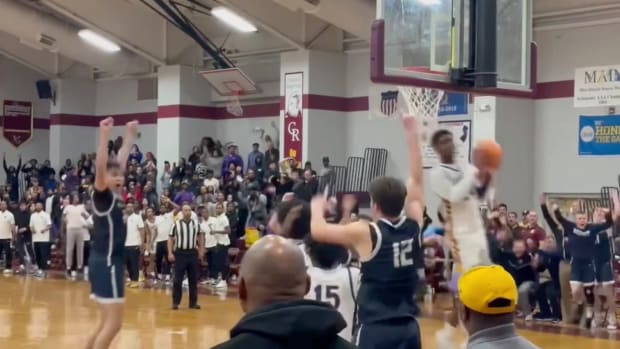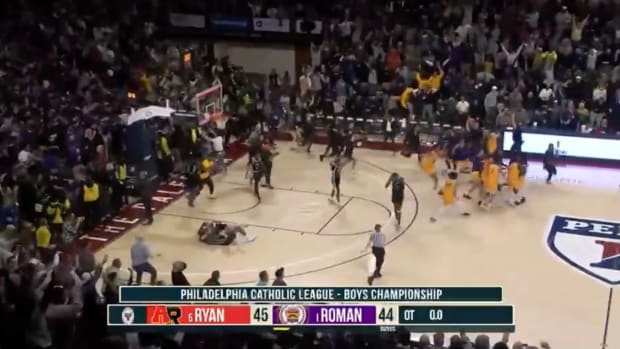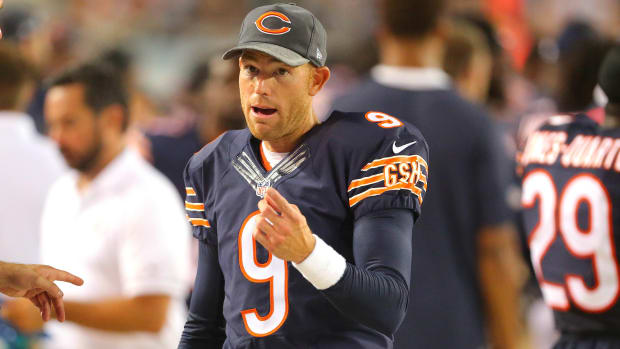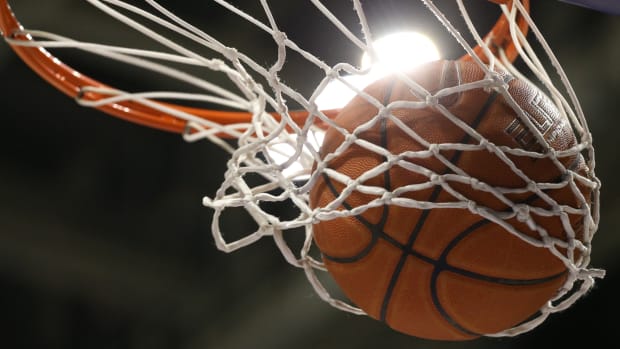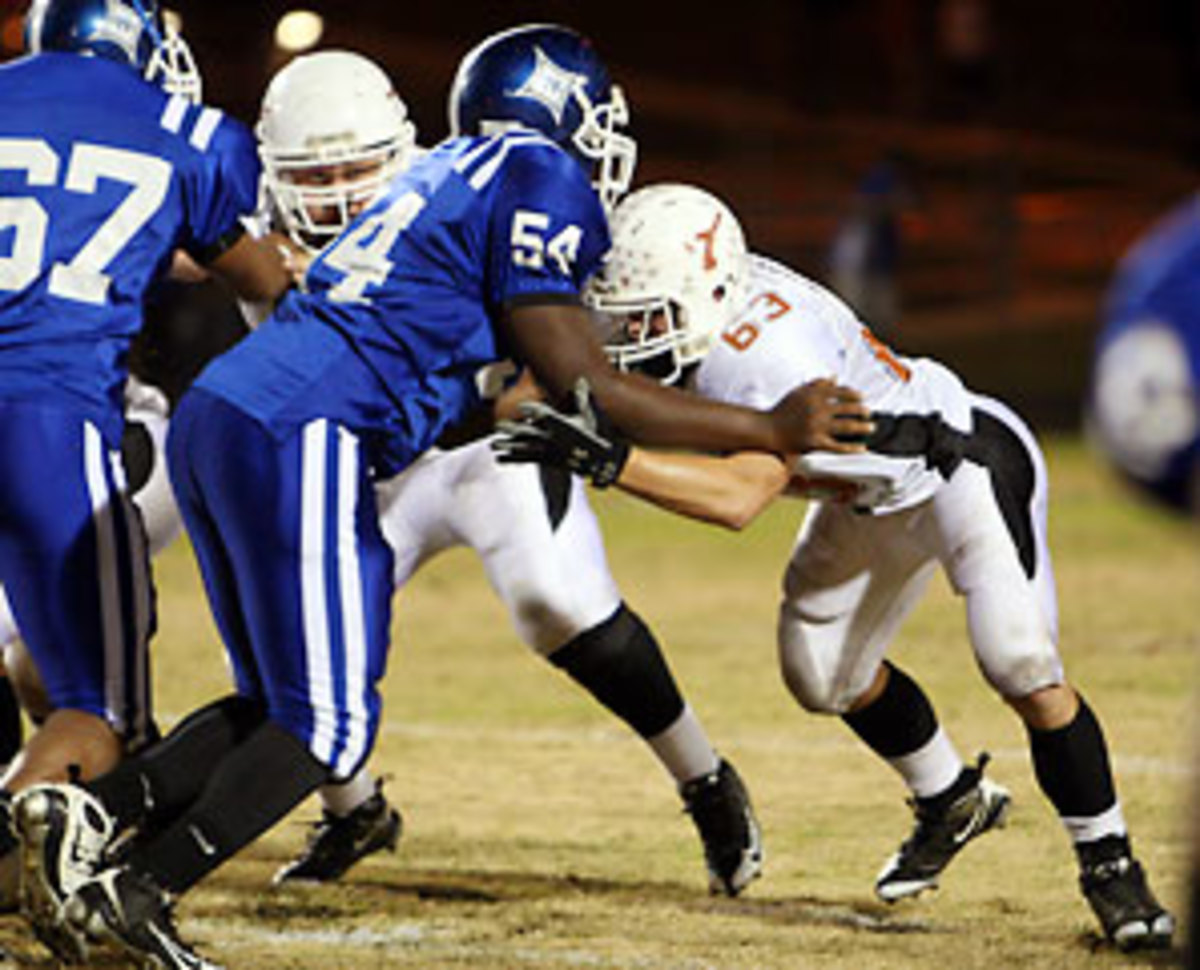
Georgia star Paul Amend refused to let brain tumor break his spirit
The blackouts started around the beginning of the school year in the fall of 2008. Amend, then a junior, would be sitting at his desk when all of a sudden the lights would go out. He never fainted or technically went unconscious, his brain simply turned off for 20 or 30 seconds and he'd lose track of time and place. When he came back, he'd look around not knowing where he was at first, then see the teacher or another student looking at him with concern, and realize he was in class. But he had no recollection of anything during the blackout.
"Everything I remember is what people told me," said Amend, now a senior at Kell High in Marietta, Ga. At first, he thought the episodes were panic attacks, which he'd experienced before, brought on by the stress of football and school (Amend is a member of the Kell Academic Team and Beta Club), and he was hesitant to tell his parents. Eventually, though, he had no choice.
"He came to me one day and said, 'Dad, something's wrong,'" Dave Amend said.
After visiting several doctors over the next six weeks, the family finally got the news that Paul had a benign tumor on the right temporal lobe of his brain. Paul's initial reaction (What? Are you serious?) turned quickly to anger as he thought about the surgery on his skull he'd undergone as an infant, and the infinitesimally small odds of one person needing two completely unrelated brain surgeries in 17 years. Soon, though, the anger melted away into what would become his mental mantra.
"I was mad at first," Amend said, "but I knew that wouldn't change anything. I just saw it as a big step that everyone takes, but mine was in a different direction."
The direction Amend knew he did not want to go in was to the sidelines. He was an invaluable two-way starting lineman on the football team, and the team was having its best season in school history. Amend told his parents and his doctor that he wanted to play.
"I had my mind made up," he said. "Nothing was going to stop me."
His doctor cleared him, saying the tumor would not physically affect him on the field and was not going to get worse if he played. There was serious danger involved, however -- Amend could endure one of his blackouts, or "absence seizures" as the doctors called them, while on the field and get steamrolled.
"I didn't really think about if anything happened," he said. "I kept looking forward."
Determined to stay on the field, he closed the regular season strong and helped Kell to its first playoff appearance since 2005. Kell lost to Harrison in the first round, but Amend finished the season with 45 tackles and three sacks on defense and was on the offensive line. Besides being a high-effort player, Amend credits his speed and wrestling skills with making him a better football player because he knows "all about leverage and where to hit people." In honor of his achievements, Amend was awarded the Coca Cola Golden Helmet for excellence in academics and athletics. The week after the season ended, he had surgery.
By an ironic twist of fate -- and one that made Amend and his family infinitely more comfortable -- the same doctor who had operated on him 17 years before, Roger Hudgins, would be handling the procedure this time, as well.
"I'm lucky to have had him twice," Amend said. "He told me, 'I fixed you before, I'll fix you again.' I was really blessed."
And don't discount the soothing contributions of Sweet Baby James; Paul says he listened to a lot of Fire and Rain to put him more at ease before the procedure. The surgery was successful and swift, and just a few days later he was released from the hospital sporting a five-inch scar on the left side of his head.
What really helped him get over the trepidation and through the operation, Amend said, were his friends and teammates. After he left the hospital, he was given a signed football by every player on his team and they told him that they had talked about all shaving their heads in a show of solidarity and support for him -- a display Paul would have appreciated despite never having considered shaving his own.
"At first I thought, Oh God, what if they all did it and I came back with a full head of hair," he says. "But then I thought about doing it just to see what they all looked like."
After a Thanksgiving for which he had a bit more material than in years past, and a dinner where he "ate everything in sight," Amend began his recuperation, aiming to rejoin the wrestling team in January. Transitioning from football season, when he was constantly trying to put on pounds in order to hold his ground against bigger players, to wrestling season, when the never-ending mission is to cut weight, was always a grueling endeavor. But this year it was positively torturous.
He had been given steroids to help him recover from the operation that he needed to get out of his system before he could compete, and he had to work off the excess football (and turkey) pounds to get down to his wrestling weight. A workout zealot who often went back to the gym after his team finished lifting, Amend could hardly do pushups because "the blood would rush to my head and it felt like my staples [from surgery] were going to burst." But as hard as his recovery was physically, he said that, mentally, the time off was exactly what he needed.
"Midway through December, I was good to go," he said. "But I waited until January to start wrestling because I just needed to take a break after football, surgery and everything else. I had to get caught up with myself, figure out where I was going next."
His wrestling coach was certainly on board with that. Steve Lattizori, who also serves as P.E. department head, wasn't even sure Amend would make it back at all.
"I didn't know what to expect at first," Lattizori said. "I told him the door is always open, but you just never know."
Amend worked himself back into match shape and rejoined the team at the beginning of the year. His teammates were cautious early on, but they soon found out -- often while lying on their backs on the mat -- that Amend was just fine.
"We ordered him this karate headgear to protect his scar, and he just said, 'I'm not wearing that,' " said Lattizori, who had put up "Pray For Paul" posters around the athletic department as a way to bring attention to Amend's operation. "He was just out of brain surgery, so we were careful with what he was doing and kept a close eye on him. We obviously wanted to do the right thing and make sure he wasn't in any danger. But he got back into it right away, and after a week he was regular old Paul."
Regular Old Paul ended up being Pretty Darn Good Paul, as he finished second in the county and second in the regional tournaments last season in the 160-pound weight class. He qualified for and competed at sectionals, but lost. ("So the Cinderella story ends there," he joked.)
"He's a strong, powerful, coachable kid," Lattizori says. "But the neatest thing about Paul is that he's really developed himself into a great wrestler through hard work. He's a self-made success and he's come so far because he's just worked at it -- he's always in the gym."
Last weekend, Amend wrapped up a successful final wrestling season by going 39-9 and competing in the Georgia State tournament in the 171-pound weight class.
Now more than a year after the operation, there is a sense of having come full circle. Amend says he is able to look back at what he calls the climax of his life with some perspective.
"I found some unknown strength that I didn't know I had," he said. "Coming back from that and wrestling as well as I did and playing lacrosse -- I am a lot stronger than I thought I was. I feel like it happened for a reason."
That feeling was reinforced when he got a Facebook friend request from a girl who had heard about Amend's operation and wanted to discuss the procedure. She had a similar tumor in the same spot on the other side of her brain and was looking for some comfort.
"She was asking me all these questions about it, and it felt good to be able to help her," Amend said.
Through it all, Amend never got caught up in a self pity, instead purely looking to "fix it and get it done," as his Dad said, and always leaving the worrying to others.
"I think Paul always saw this as just a minor setback," Lattizori said. "Out of all of us, he treated it like it was no big deal. He just wanted to get on with his life."
"I always looked at this as, This is another obstacle I have to deal with, this is the next part of my life," he said. "Everyone has a roadblock in their life; I just took mine as it came and embraced it."
